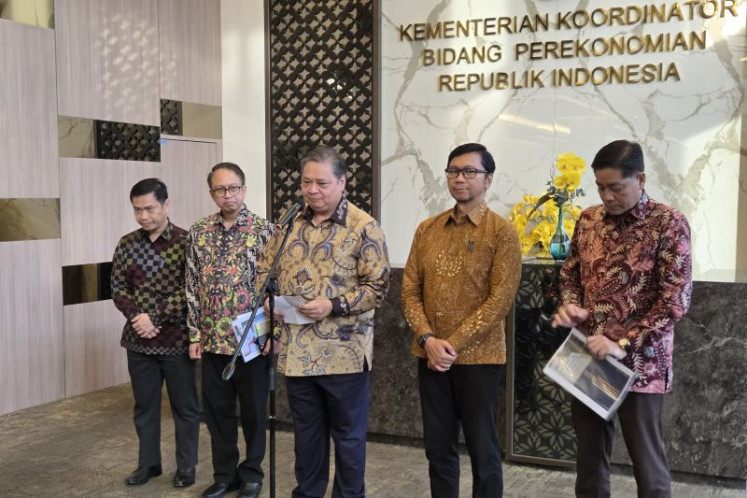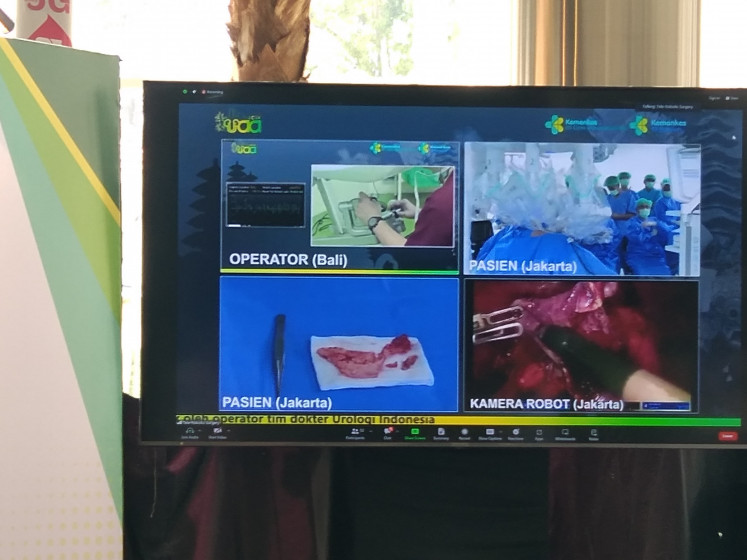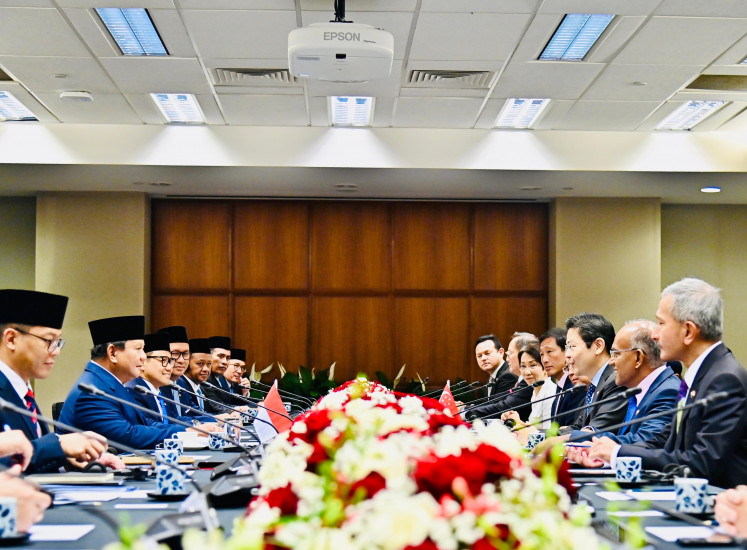Popular Reads
Top Results
Can't find what you're looking for?
View all search resultsPopular Reads
Top Results
Can't find what you're looking for?
View all search resultsWest Java takes lead in geothermal energy
Blessed with abundant geothermal energy potential, West Java has become the government’s mainstay in reaching its target of increasing the contribution of renewable energy to the country’s power generation to 23 percent by 2025
Change text size
Gift Premium Articles
to Anyone

B
lessed with abundant geothermal energy potential, West Java has become the government’s mainstay in reaching its target of increasing the contribution of renewable energy to the country’s power generation to 23 percent by 2025.
The Energy and Mineral Resources Ministry’s director of geothermal energy, Ida Nuryatin, said on Friday the province currently had 1,194 megawatts (MW) of installed capacity of geothermal power plants, or 61 percent of the total renewable energy capacity at 1,948 MW.
“We have abundant geothermal energy potential in West Java compared to other provinces. And it has benefited the region with a large amount of PNBP,” she said, referring to non-tax revenue, during a seminar on geothermal energy in Garut, West Java.
“Currently, we have seven onstream geothermal power plants in West Java.” The seven power plants are: Kamojang, Salak, Darajat, Wayang Windu, Patuha, Karaha and the newest one is Cibuni, which is still in the pre-production phase with a planned 1x30 MW installed capacity.
Based on data from the ministry, West Java has at least 39 potential locations for geothermal plants, five of which have already been set as working areas. One of the five spots is ready for further development and the remaining four still need further study.
Pertamina Geothermal Energy (PGE), a subsidiary of state-owned oil and gas holding company Pertamina, as the operator of Kamojang and Karaha power plants, is expected to increase the installed capacity of its geothermal power plants by exploring new wells inside the exsiting area in Kamojang.
“If we found a new source of geothermal, one well could generate a steam that is equivalent to 5 to 15 MW as the area has a potential reserve equivalent to 300 MW, but to date we only have installed 235 MW,” PGE president director Ali Mundakir said.
As of September, investment realization in the geothermal energy sector, which contributed to around 60 to 65 percent of Indonesia’s renewable energy investment, had reached US$800 million, or 70 percent of the yearly target of $1.2 billion.
Regarding the installed capacity target, it had reached 1,948 MW as of September, or 94.6 percent of the yearly target of 2,058 MW. The target is 13 percent higher than 2017’s target of 1,808 MW.
However, the current installed capacity is far from its full potential resources at 28.5 gigawatts (GW) and proven reserves at 17.5 GW, according to data from the ministry.
Wawan Supriatna, secretary of the ministry’s renewable energy and conservation directorate general, said there was some resistance from local people against the geothermal power plants, citing the environmental impact.
“The installed capacity of geothermal energy is still well below its potential. […] The implementation [of geothermal projects] is still facing problems from local resistance as a result of a lack of understanding,” he said.
Ida, meanwhile, sees the local resistance as a challenge for geothermal energy investment.
The geothermal energy director took the example of a potential geothermal energy site inside Mount Leuseur National Park in Bukit Barisan, Sumatra, which is called Tropical Rainforest Heritage of Sumatra (THRS).
“We are currently preparing our paper to support our plan to develop the area as a potential geothermal working area that we will present to UNESCO next year,” she said.









